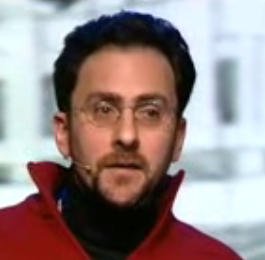Francois Grey

Francois is passionate about advancing Open Science, specifically Citizen Cyberscience, as the focus for his Shuttleworth Foundation Fellowship. Citizen cyberscience is a collective term for a diverse, grass-roots movement that is enabling ordinary citizens to participate in real scientific research thanks to the Web. Practically anyone with an Internet connection can join: schoolchildren, office workers, pensioners. Using PCs, laptops and even mobile phones, volunteers can classify images of distant galaxies or track the migration patterns of endangered species, to name just two examples.
Citizen cyberscience is social networking with a purpose. It turns science education into a highly motivating participative activity. At present, citizen cyberscientists are mainly concentrated in Europe and North America, and number in the hundreds of thousands. Francois’s aim is to help make this number grow to tens of millions. He is catalysing a trend in the scientific community that will boost the number of online science projects, from dozens today to thousands in a few years. Most importantly, he wants to help more scientists in the developing world – Africa, Latin America and South-East Asia – to exploit citizen cyberscience, since it is a highly appropriate technology for researchers with limited resources.
Francois is a physicist by training, with a background in nanotechnology and a strong interest in science communication. He spent six years at CERN, managing IT communications. In 2004 he initiated and managed the launch of a volunteer computing project called LHC@home. This led to another project called Africa@home, launched in 2005 in collaboration with several academic institutions, NGOs and United Nations agencies.
He is currently based in Beijing, where he has spent the last two years as a visiting professor at Tsinghua University, part of that time supported by the Chinese Academy of Sciences to develop citizen cyberscience in China and more widely in South-East Asia, through an initiative called Asia@home and a project called CAS@home. In 2009, he helped establish a Citizen Cyberscience Centre in Geneva, which is a partnership between CERN, the United Nations Institute for Training and Research and the University of Geneva.
- Pitch document
Francois Grey Blog
-
Upscience Downtown: Science Hack Day comes to Brooklyn
New York’s World Science Festival, in the last week of May, is an amazing series of science-related events. If you want to see stars, and I mean the Hollywood variety, this is the place. Paul... Read More – ‘Upscience Downtown: Science Hack Day comes to Brooklyn’.
Upscience: inverting the pyramid of scientific enquiry
Children mainly learn how science works from textbooks, as do their parents and teachers. The wider public experiences scientific discovery vicariously, through best-seller popularizations, news... Read More – ‘Upscience: inverting the pyramid of scientific enquiry’.
Citizen Science Stew
Here’s the text of my kick-off at the Royal Geographical Society in London to last week’s amazing Citizen Cyberscience Summit. The event brought together >330 participants from all parts... Read More – ‘Citizen Science Stew’.
And the winners are…
Science Hack Day NYC wrapped up with a grand finale Sunday night, when 12 teams presented their hacks. Judged by Beth Noveck, director of NYU’s Govlab, Steve Koonin, Director of NYU’s... Read More – ‘And the winners are…’.
Keep on hackin’
Thought hackers were dangerous people? Think again! Like some other words in the English language, hacker started out as a benign activity, then got co-opted somewhere along the line to mean... Read More – ‘Keep on hackin’’.

